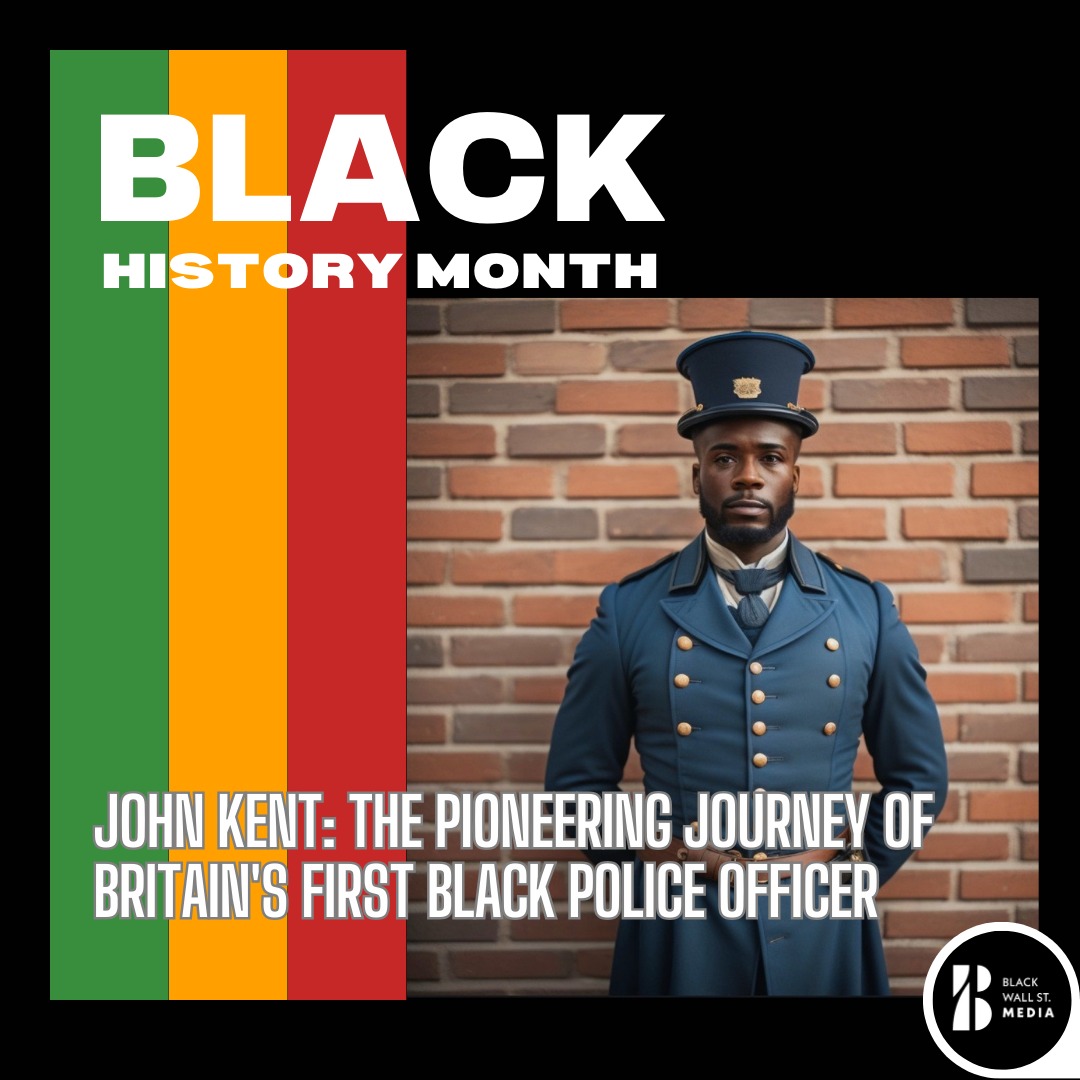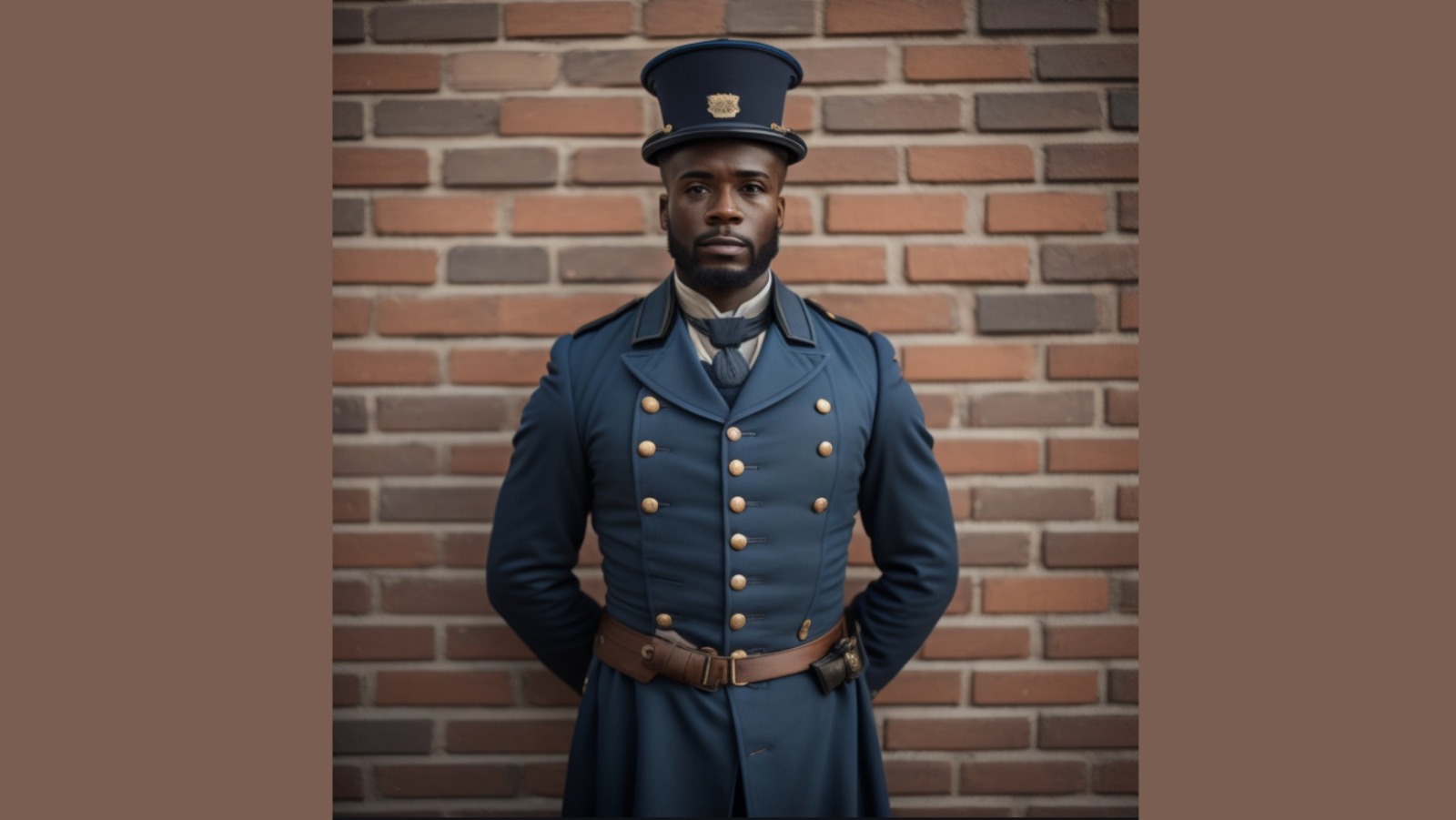HISTORY
John Kent: The Pioneering Journey of Britain's First Black Police Officer
“📢 Discover a Hidden Gem of British History! 🇬🇧
Unearth the captivating story of John Kent, Britain's First Black Police Constable. In an era of adversity and pioneering spirit, he blazed a trail for justice. 🌟
🔍 Explore his extraordinary journey:”
Black Wall St. MediaContributor

The Pioneering Odyssey of John Kent: Britain’s Inaugural Black Police Constable
In the chronicles of British history, there exists an array of narratives involving individuals who left indelible imprints on society. Among these stories lies the remarkable journey of John Kent, a figure whose exceptional fortitude and determination cast him as the first black police constable in Britain.
The Early Life of John Kent

Britain’s First Black Police Officer
John Kent was born in 1805, a period when the British Empire held dominion over vast territories. Unbeknownst to him, he would emerge as a central figure in challenging the racial norms of his era.
His father, Thomas Kent, a former seaman hailing from the West Indies, embarked on a voyage that brought him to Whitehaven, England.
There, he found employment at Abbey House, Calder Abbey, laboring under the service of the Senhouse family, who once regarded him as a captive soul.
With the passage of time, Thomas Kent was granted his freedom, embarking once again on the maritime journey.
The true origin of the Kent surname shrouds itself in mystery. Speculation suggests that John Kent’s father adopted his family name from the locale in England where his vessel initially docked. In 1787,
Thomas Kent wed Mary Wilson, and together, they welcomed nine children. John Kent, the eighth progeny, would pave his path into the annals of history.
Kent’s Ascent to Becoming a Police Officer
John Kent’s transition to the role of Britain’s inaugural black police constable was not devoid of adversity. He commenced his career as a parish constable in Maryport before enrolling in the ranks of the Carlisle City Police force.
On August 17, 1837, he commenced his service as a supernumerary constable, ultimately securing a substantive constable position on October 26, 1837. Within the city, he was affectionately known as “Black Kent,” a moniker wielded by adults to instill dread in unruly children.
In the course of his tenure, John Kent achieved recognition for numerous arrests, underscoring his dedication to the cause of upholding the law. One anecdote harkens to his apprehension of two notorious counterfeiters known as “coiners.”
After capturing the initial suspect, Kent ingeniously bound the individual to a fireplace grate within his own home. He left behind an unloaded pistol, entrusting his wife to employ it should the prisoner attempt to flee. Kent subsequently succeeded in apprehending the second coiner.
In 1841, while overseeing crowd control during an election gathering in Carlisle, an outbreak of violence unfolded.
Tragically, one police officer fell victim to a crowd member’s assault. John Kent provided pivotal evidence of the ensuing tumult at the Carlisle Assizes.
The Culmination of Kent’s Police Career
Yet even for pioneering figures like John Kent, challenges emerged. In the 19th century, police officers frequently battled the perils of alcohol consumption on duty due to the scarcity of clean drinking water.
This dilemma confronted Kent on December 6, 1844, as he reported for duty under the influence of alcohol.
A novel Chief Constable had recently instituted stringent measures for reprimanding officers discovered inebriated while on duty.
Kent’s destiny took a fateful turn as he was instructed to appear before a watch committee. Subsequently, he faced disciplinary action and was dismissed from his police service on December 12, 1844.
Life Beyond the Police Force
Following his departure from the police force, John Kent continued to contribute to his community in various capacities. His employment records indicate that he functioned as a court bailiff before taking on the role of a parish constable in the Eskdale ward.
Remarkably, Kent made an unforeseen return to service at the age of 78, assuming the role of an attendant working for the London and North Western Railway Companies. He found his place within the waiting rooms at Citadel station in Carlisle.
The Legacy of John Kent
On July 20, 1886, John Kent drew his final breath at his residence on Henry Street, Carlisle. The announcement of his passing was captured by headlines such as “Black Kent is Dead” in the Carlisle Journal.
The Carlisle Patriot marked his departure with an article titled “The Death of a Carlisle Notable.”
John Kent’s legacy resided within the silent corridors of history, an emblem of the determination and strength that saw him shatter the racial confines of his time to attain the distinction of being Britain’s first black police constable.
His name evoked courage, justice, and the unyielding pursuit of equality. The discovery of John Kent’s pioneering story in 2006 recast the narrative of black policing in the United Kingdom.
His narrative stands as a testament to the indomitable spirit of a man who triumphed over adversity to etch an enduring legacy on the tapestry of British history.
”John Kent, Britain's premier black police constable, remains an emblem of valor, equity, and the enduring quest for parity.
Black Wall St. MediaContributor










